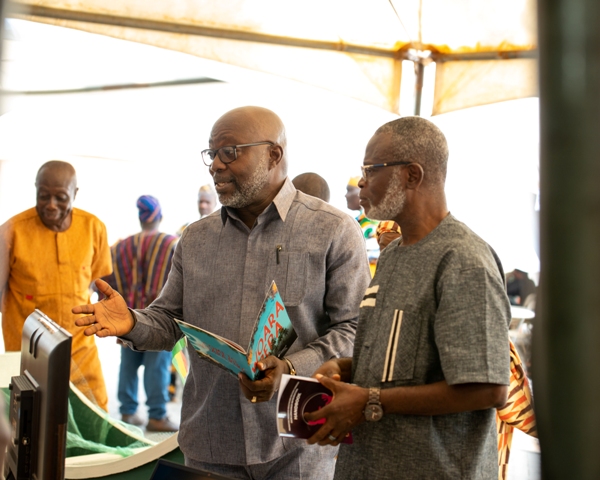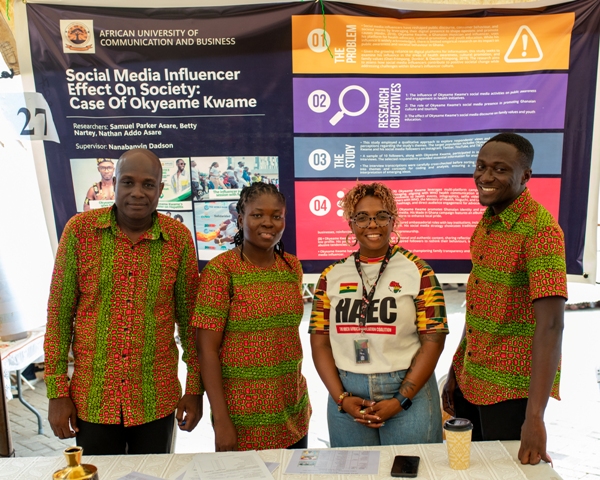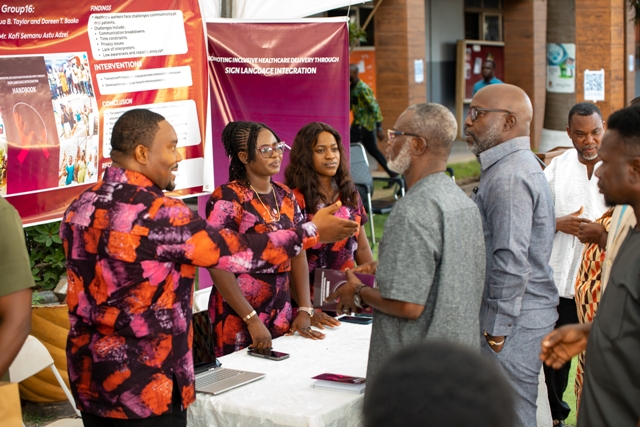The Africa University of Communications and Business (AUCB), in partnership with the HBCU Africa Coalition (HAEC), held its 2025 Capstone Project Presentations on Tuesday, June 11, shining a spotlight on the creativity, innovation, and problem-solving abilities of its final year students.
The event, which took place on the university’s campus, marked the culmination of a year-long academic exercise and featured a cross-section of impactful projects addressing real-world challenges. A distinguished panel, including the Chancellor, Vice Chancellor, Chair of the Governing Council, and both AUCB and HAEC faculty members, alongside external assessors from industry and academia, evaluated the students’ presentations.
Also Read: NPP Communicator wants Freddie Blay sanctioned for ‘supporting Mahama third term agenda’

The AUCB Level 400 Capstone Project departs from the traditional long essay model, opting instead for a practical, community-based and solutions-driven approach. Final-year students are required to identify challenges within their communities or industries and develop actionable solutions over the course of two academic semesters.

Speaking at the event, the Vice Chancellor, Prof. Abeku Blankson, emphasized the relevance of the Capstone model. “This exercise moves away from the age-old practice of lengthy dissertations that often gather dust. Instead, we focus on equipping our students with real-world problem-solving skills to prepare them for the demands of the modern workforce,” he said.

The Capstone course, a six-credit undertaking, is executed in two phases. The first semester focuses on research and proposal development, while the second semester involves implementation, monitoring, and presentation. The approach encourages teamwork, critical thinking, and hands-on application of knowledge in areas such as communication, journalism, business administration, media, development and strategic communication, and visual arts.

This year’s presentations featured a diverse array of outputs, including short documentaries, strategic campaign plans, posters, and digital media tools. Many of the projects tackled issues of national importance—ranging from youth unemployment and plastic waste pollution to mental health awareness and rural enterprise development.

The programme further reinforced AUCB and HAEC’s shared commitment to education as a driver of national progress. By bridging academic work with real-life challenges, AUCB continues to position itself as a trailblazer in higher education reform.
The event ended on a high note with commendations from evaluators who praised the students’ efforts, and called for broader support for initiatives that promote innovation and practical learning in tertiary institutions across Ghana.


